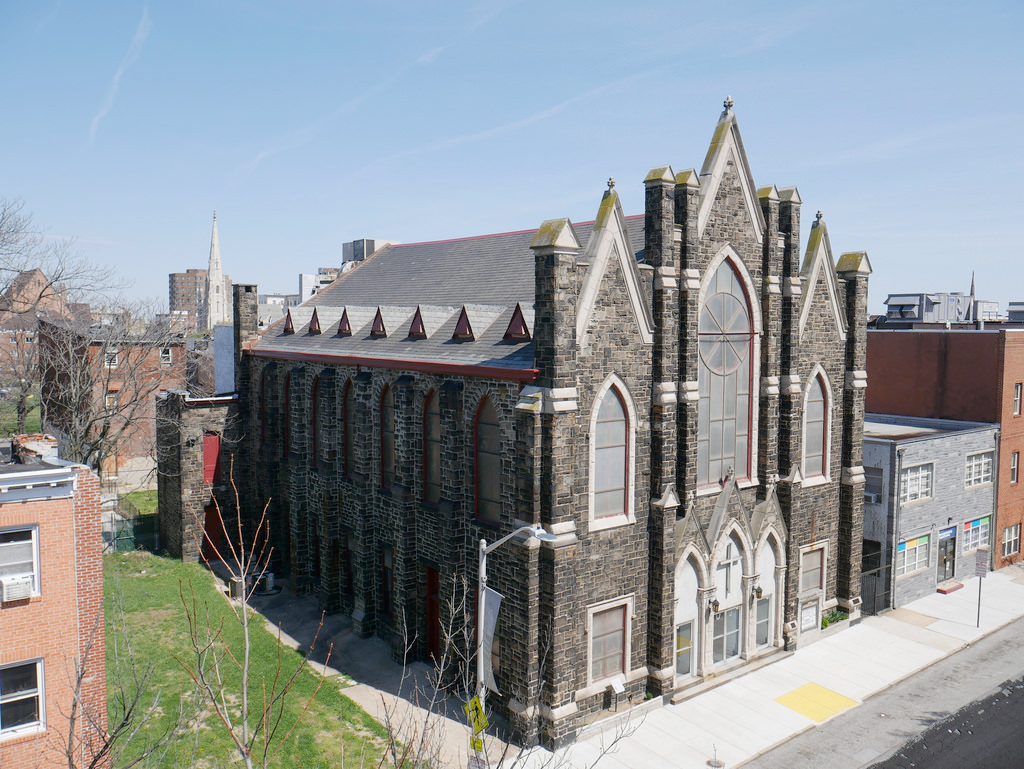Our project on Baltimore’s Civil Rights Heritage is supported by the Maryland Historical Trust, the National Park Service, and PNC. This post is a draft of an essay recorded for Humanities Connection on WYPR in 2017.

It is easy to forget that the Civil Rights movement did not begin in the basement of the Dexter Avenue Baptist Church where Martin Luther King, Jr. and others organized the Montgomery Bus Boycott in 1955. It is easy to forget that the movement did not end in 1968 on a balcony of the Lorraine Motel in Memphis, Tennessee. It is easy to forget but, as Baltimore’s own Frederick Douglass reminded his audience in 1884:
“It is not well to forget the past. Memory was given to man for some wise purpose. The past is the mirror in which we may discern the dim outlines of the future.”
We’ve kept his words in mind, as Baltimore Heritage and our partners documented the local history of the Civil Rights movement for the National Register of Historic Places. We’re looking at books, letters, and old photographs. But we’re also looking at the churches, homes, parks, and street corners where the history of the movement took place.
Today, Baltimore remembers Frederick Douglass with statues at Morgan State University and at a waterfront park at the western end of Thames Street. The Aliceanna Street house where Douglass lived before escaping from slavery in 1838 is gone. You can still visit the 500 block of South Dallas Street in Fell’s Point and see a group of rowhouses Douglass built in 1892.
People all around the country remember Douglass’ story. As a historian, I’m always grateful to people who remember.
Members of Union Baptist Church remember their former pastor Reverend Harvey Johnson and his wife Amelia E. Hall, an influential Afro-Canadian writer. In the 1880s, Johnson founded the Brotherhood of Liberty, one of the earliest Civil Rights groups in the nation. He fought for Civil Rights in the city’s courtrooms, writing: “there must be Negro lawyers, men who have themselves suffered and who will fight the people’s fight, because the people’s fight will be their own battle.” In 1905, Johnson built the sancturary for Union Baptist Church on Druid Hill Avenue where the congregation continues to worship today.
Long-time residents of Morgan Park in northeast Baltimore remember their former neighbor W.E.B. Du Bois. He visited Baltimore regularly in the early 1900s, seeking advice on organizing and activism from Rev. Johnson at Union Baptist. In 1905, Du Bois wrote: “We claim for ourselves every right that belongs to a freeborn American—political, civil and social—and until we get these rights, we will never cease to protest and assail the ears of America with the story of its shameful deeds toward us.” In 1939, Du Bois and his wife Nina built a house on Montebello Terrace in Morgan Park. After Nina’s death in 1950, DuBois split his time between Baltimore and New York before leaving the United States for Ghana in 1962.
Local politicians both black and white, remember Victorine Q. Adams. She started her work in politics in the 1940s. She established the Colored Women’s Democratic Campaign Committee to support politicians who opposed segregation and discrimination and the group, Woman Power, to get more black women involved in politics. At her home in Hanlon Park, Adams set up a voting machine and taught hundreds of black Baltimoreans how to vote for change. Finally, in 1968, Adams moved into a new office at Baltimore’s City Hall as the first black woman elected to the City Council.
Everyone in Baltimore remembers the 2015 protests at the Western District Police Station following Freddie Gray’s death in police custody. Through our research, we’ve learned that activists have a long history at the Mount Street police station. Activists picketed outside to protest police violence in 1966, 1969, 1972, and 1980.
We want to know what you remember about Baltimore’s Civil Rights movement. Please read more about Baltimore’s Civil Rights movement and our project by visiting baltimoreheritage.org.
Reuse
Citation
@online{pousson2017,
author = {Pousson, Eli},
title = {Who Remembers {Baltimore’s} {Civil} {Rights} Heritage?},
date = {2017-07-11},
url = {https://elipousson.github.io/posts/2017-07-10-civil-rights-heritage},
langid = {en}
}